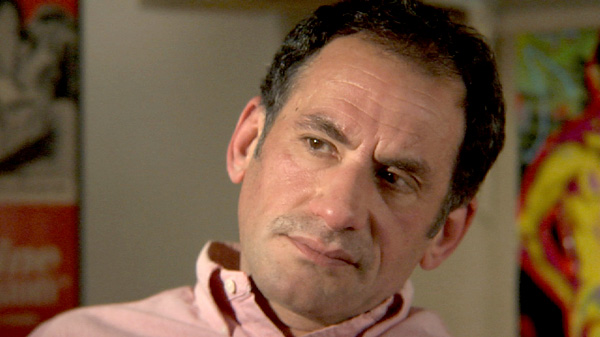|
Reviews of Recent Independent, Foreign, & Documentary Films in Theaters and DVD/Home Video

SEX POSITIVE
Director Daryl Wein tells the story of Richard Berkowitz, one of that period’s forgotten figures, and in doing so provides a historical and personal context for a not-so distant era. Now destitute and living on government assistance in New York City, Berkowitz was once a lightning rod in the storm of 1980s gay activism and AIDS crisis chatter. In intense interviews with Berkowitz, Wein pulls out of him as much as Berkowitz will allow revisiting. Berkowitz was a typical gay teen. He assumed his early sex preferences would go away once he began his adult life, but college came and he only found more sex and identity politics. Here, he both fought for gay rights and became a prostitute for fun and money. Moving to New York, he fell deep into the drug culture and S&M hustling. And when the AIDS epidemic hit, Berkowitz became a crusader. At a time when no one knew what AIDS was (and to an extent he still argues science doesn’t understand the disease), Berkowitz believed the theory of his clinician Dr. Joseph Sonnabend that AIDS was multifactorial rather than a straightforward virus. This argued that lifestyle proclivities played a role in the transmission of the disease. Whether or not this held scientific weight, Sonnabend’s theory predicted today’s behavioral prevention of AIDS. To his detractors, the message Berkowitz represented was “sex negative,” advancing the common outsider’s idea that gay people brought on this disease with promiscuity and willful sexual debasement. Larry Kramer, another lightning rod from the time, warned Berkowitz not to talk about his theories in front of the media. Further, while Berkowitz was advocating for safer sex, he was also a tireless hustler. The community consensus felt that a promiscuous queer blaming promiscuity for the spread of AIDS was feeding into bigotry. Ardent and sincere, Berkowitz refutes this misconception. Yes, he blamed transmission on rampant sex adventures typical of 1970s gay culture, but he also published a pamphlet called How to Have Sex in an Epidemic: One Approach. This pioneered the idea that gay men could use condoms to avoid transmitting diseases like AIDS without losing the fun of sex play. Yes, he kept hooking, but he advertised himself as an S&M prostitute who practiced safe sex. Wein’s poke into recent history is
stunning for a younger generation without firsthand knowledge of how
today’s sexual mores evolved—like Wein himself, born in 1981. Like most
activists, Berkowitz is a good storyteller who doesn’t skimp on
autobiographical grit, and he responds to questions with immediacy and
thoughtfulness. (Speaking of grit, we even see some videotaped mementos from
Berkowitz’s sex career.) Wein edited the interviews casually with
questions left in tact, making these segments feel like a casual series
of probing conversations between friends. Overall, this low-budget
documentary from a first-time director is an absorbing history lesson
for those sorely in need of one. Zachary Jones
|

